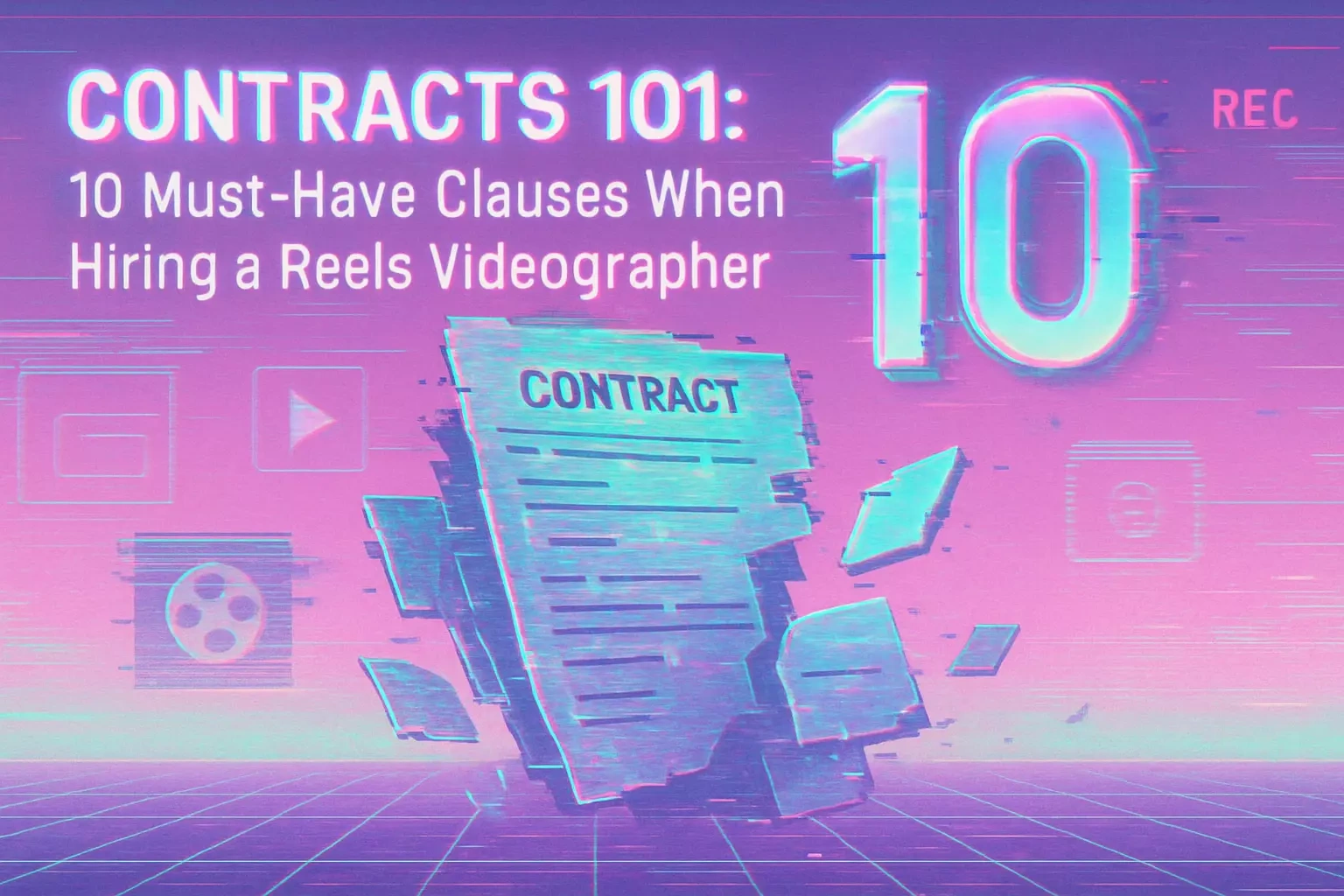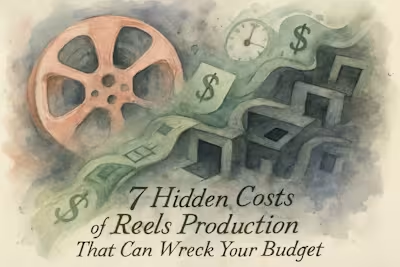Contracts 101: 10 Must-Have Clauses When Hiring a Reels Videographer

Contracts 101: 10 Must-Have Clauses When Hiring a Reels Videographer
The Basics: Who, What, When, Where?
Clause 1: Identification of the Parties
Clause 2: Detailed Scope of Work
Clause 3: Project Timeline and Deliverables
The Financials: Getting the Money Right
Clause 4: Payment Structure and Schedule
Clause 5: Handling of Additional Costs
Clause 6: Revisions and Late Fees
The Legal Protections: Ownership and 'What Ifs'
Clause 7: Intellectual Property (IP) and Usage Rights
Clause 8: Cancellation and Rescheduling Policy
Clause 9: Independent Contractor Clause
Clause 10: Confidentiality and Governing Law
Wrapping It All Up
References
Contracts 101: 10 Must-Have Clauses When Hiring a Reels Videographer
The Basics: Who, What, When, Where?
Clause 1: Identification of the Parties
Clause 2: Detailed Scope of Work
Clause 3: Project Timeline and Deliverables
The Financials: Getting the Money Right
Clause 4: Payment Structure and Schedule
Clause 5: Handling of Additional Costs
Clause 6: Revisions and Late Fees
The Legal Protections: Ownership and 'What Ifs'
Clause 7: Intellectual Property (IP) and Usage Rights
Clause 8: Cancellation and Rescheduling Policy
Clause 9: Independent Contractor Clause
Clause 10: Confidentiality and Governing Law
Wrapping It All Up
References
Posted Jun 30, 2025
Hiring a reels videographer? A solid contract is your best protection. Learn the essential clauses to include, from deliverables and payment terms to intellectual property rights, ensuring a smooth and successful collaboration.








